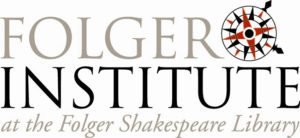OI-Folger Institute Fellowships
This fellowship is dedicated to funding studies of early America, broadly understood. Folger-OI fellowships support researchers—from advanced graduate students to senior scholar—with strong interests in Atlantic history, colonial history, literary studies, performance history, and material culture. Folger-OI fellows receive $3,500 for four continuous weeks of work at the Folger Institute in Washington, DC. Recipients are expected to join the OI Associates program upon notification of their selection, if not already a member. The cost of membership dues will be added to the fellowship award when it is disbursed. Please note that ABD applicants who are applying exclusively for this fellowship should state this intent in their application.
Applications for this fellowship are handled through the Folger website .

Regarding the Collections at the Folger Library
The Folger Library is known for its Shakespeare collections, but the Library’s holdings support research on all aspects of British and European literary, cultural, political, religious, theatrical, and social history from the fifteenth through the eighteenth centuries: and that includes materials that document early modern interactions between African, American, and European women and men.
The Folger has a wide range of materials—both in manuscript and print, as well as art, etchings, woodblocks, and drawings—which are of interest and use to scholars of early America. A unique and complete set of mixed-media manuscript and print indentures, all bonded in one year (1682/3), by one office in London, document the lives of sixty-five women and men who promised their future labor in exchange for passage to Barbados, Virginia, Maryland, and Pennsylvania. Engravings by the Czech engraver Wenceslaus Hollar capture the likenesses of four seventeenth-century children of African descent (we do not know whether they were enslaved or free), as well as one young Algonquian-speaking man.
Printed texts, such as Hariot’s 1590 Briefe and True Report of the New Found Land of Virginia, Herbert’s Some Yeares Travels into Divers Parts of Asia and Afrique (1638), Ogilby’s 1670 edition of his book Africa, and Ward’s Trip to Jamaica (1698), document European reactions to and interpretations of the people and places they encountered in their conquest and exploitation of Atlantic and Pacific worlds, and are joined by mediated sources such as John Pory’s 1600 translation of Leo Africanus’ Geographical Historie of Africa.
The Folger also holds an extensive collection of early maps, including a rare hand-tinted copy of Ephraim Pagitt’s polemical 1636 Christianography, as well as other cartographic works by Mercator, Ogilby, Ortelius, Ralegh, Seller, and Speed. These printed works in English are matched by an equally impressive collection of sixteenth-, seventeenth-, and eighteenth-century books in French, Italian, Portuguese, and Spanish, many of which are relatively undiscovered as their records are contained in the on-site card catalog alone. Many of the Folger’s texts are heavily annotated, with extensive marginalia, deletions, and commentary; these kinds of editions are a hallmark of the collection, as the library’s founder, Henry Folger, placed particular value upon books that had been marked and used by their early modern readers.
